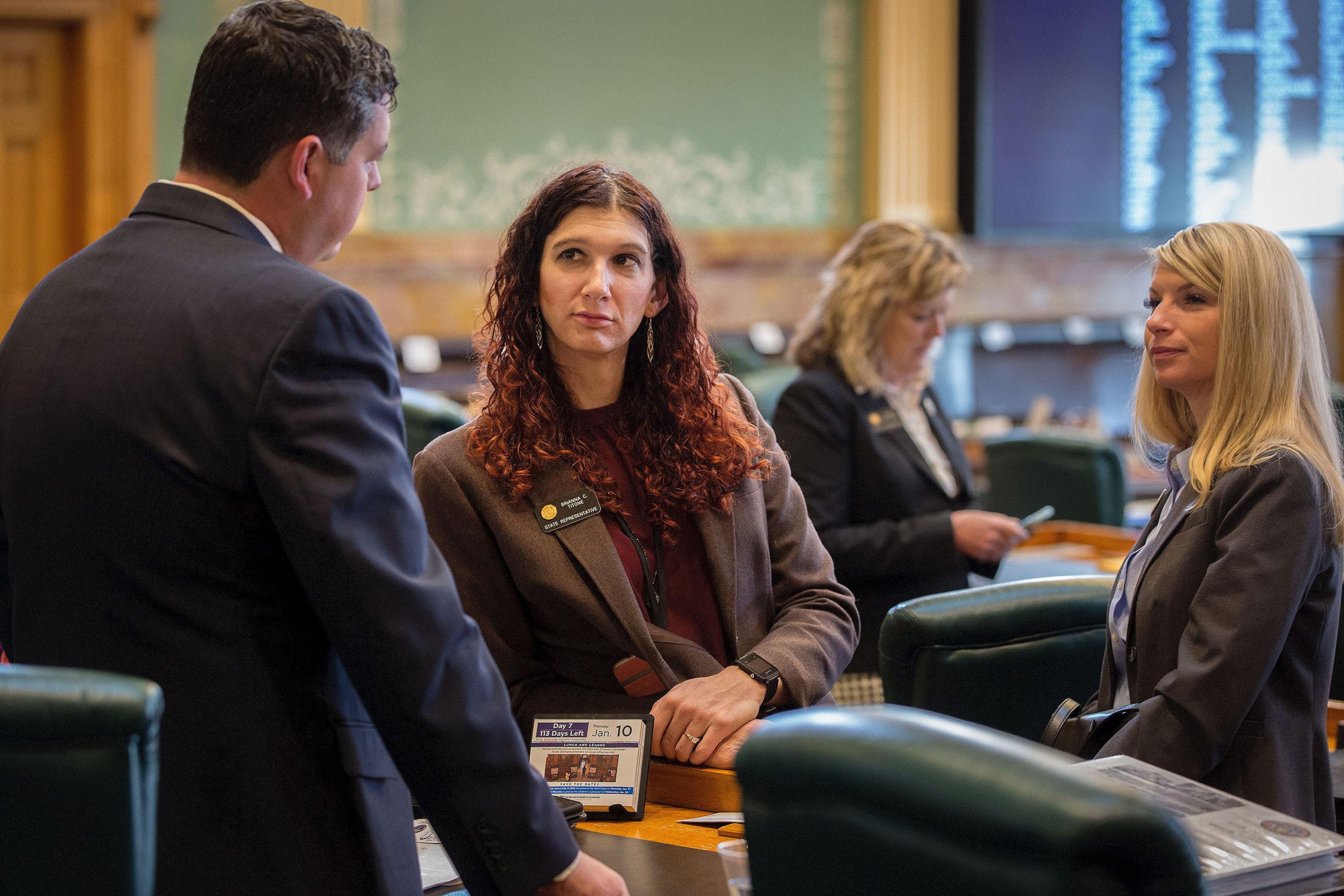
Democratic Rep. Brianna Titone made Colorado history in January as the state’s first transgender lawmaker. She’s one of only four trans state lawmakers in the country.
“That does kind of put a little bit of self-imposed pressure on myself to do the best that I can,” Titone said. “But, on the same token, I would have done that anyway.”
Titone transitioned a few years ago. She said President Trump’s election — and her concerns about his policies — is what got her interested in running for office. Titone narrowly flipped a Republican held-seat in Arvada in Colorado’s November blue wave. Her race was one of the closest and took both Democrats and Republicans by surprise.
Titone, who holds two bachelor’s and two master’s degrees in science and technology didn’t make her gender identity a big part of her campaign. Neither did her opponent.
“I only had one person really treat me really badly out of the thousands of doors I knocked on and even in my personal life, walking around and talking to people, it’s kind of the same way,” she said. “I get treated very differently in person than I do online.”
Now that she’s at the capitol, she tries to balance standing up for the transgender community while also prioritizing her district. That’s why she said she didn’t sign on as the main sponsor of a bill that would make it easier for transgender people to change their birth certificates, even though she backed it publicly.
“I told the people in my district I was going to do the things important to them and I wanted to keep my promise. That bill never came up as one of the things that they were really talking about.”
Titone is very aware that the next election is just around the corner. Her seat is in a solidly Republican district, House 27, and will be a top target for the GOP.
“The last thing I want people to do is, is pigeonhole me to have an agenda to help myself,” she said.
Even though transgender issues are not her main focus, she’s already been thrust into the spotlight on one of the most contentious LGBTQ debates this session. Titone sits on the Health and Insurance Committee, which heard contentious testimony on the Democratic sex education bill. Ahead of the hearing, she and other committee members were inundated with phone messages and emails from opponents.
“I do not believe that our schools should be forced to instruct children on homosexual and lesbian sex,” said one message. And another: “talking to little tiny kids about graphic sex, of any kind is child abuse. Telling them that they don’t have a gender is telling them that they don’t matter and may as well not even exist.”
House Bill 19-1032 would require same-sex and transgender relationships to be part of the curriculum. It would also ban teaching gender stereotypes. Yet, the material must be age appropriate. While public and charter school groups have not opposed the bill, the hearing brought out hundreds of opponents. The testimony was combative and graphic. Titone said she found some of it personally offensive, especially because many people looked directly at her as they testified.

“I’m watching what she’s going through and as a friend and of course my heart’s going out to her,” said fellow committee member Republican Rep. Mark Baisley. “And I’m watching her because I’m thinking, what’s she thinking here, what is she going through? What has she gone through?”
Baisley, an aerospace engineer by trade, was also elected last fall and serves on two committees with Titone. They immediately connected over their IT and science backgrounds. Baisley said Titone is the first transgender person he’s ever worked with, and before he met her, he didn’t even know the state had elected a transgender lawmaker.
“If I just surround myself with people that are just like me, then I think that would be a bit of a boring existence,” he said.
His friendship with Titone hasn’t changed Baisley’s vote, however. He does not support the transgender birth certificate measure and feels the comprehensive sex ed bill is government overreach. But, he said he appreciates her perspective.
“It makes me analyze things even more.”
There are varying levels of comfort with a transgender lawmaker. Some Republicans felt Titone politicized military appreciation day by singling out transgender service members. And Titone is prepared for what may happen if colleagues publically call her the wrong gender.
“That would be an inappropriate thing, in and I could forgive it if it’s done once and I correct them, but you know, if they’re doing it more than once, I just like to think things through and kind of play mental chess in that respect,” Titone said. “So, I know how I’m gonna handle it so I can, not get emotional or fly off the handle.”
Later this year, she hopes to get together with the country’s three other trans state lawmakers to compare notes about their experiences. She looks forward to the time when her gender isn’t an issue, and it’s just about her as a person. For Titone, service as a state lawmaker can help break down those stereotypes: “that’s why I’m here.”









